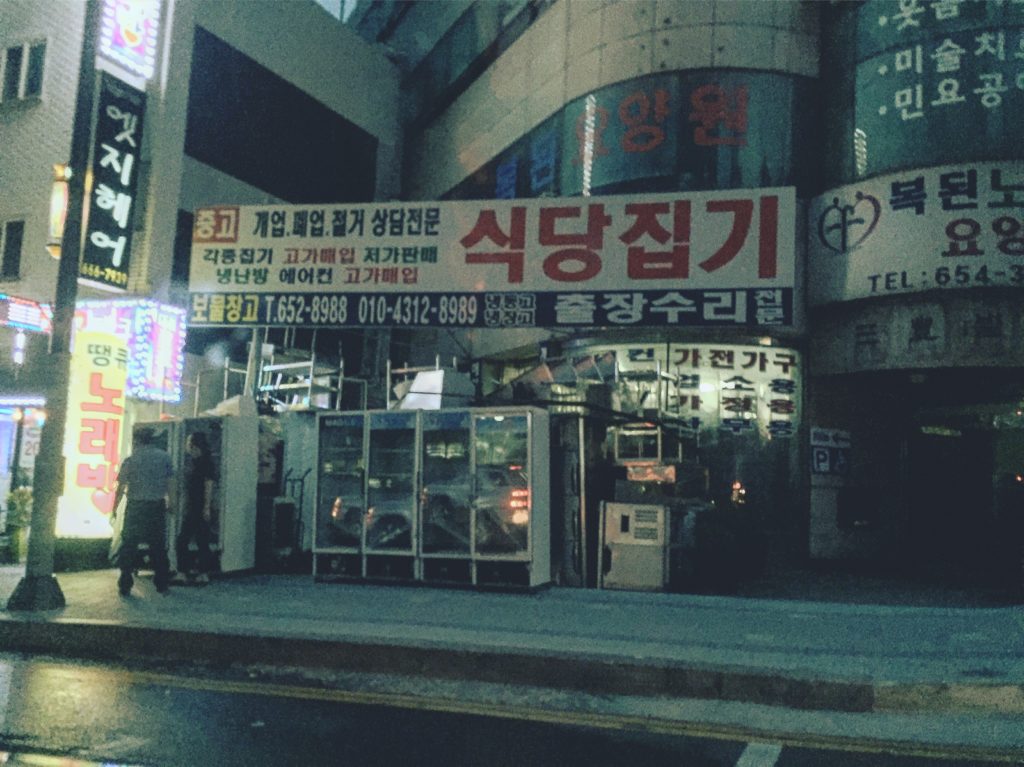Ben’s Blog: “I Went Past Your House.”
It’s over a year since our festival debut and I’m still clocking up the air miles. I’m not alone. I thought my own existence precarious, but there’s an astonishing group of people whose entire lives are spent hopping from one festival to the next. Journalists, distributors, exhibitors, fanatics – they are a breed apart, part diplomat, part travelling salesperson, part preacher looking for converts (“Can I send you some Takeshi Miike films, they will change your life…”) Over breakfast in Bucheon we agree that the international film festival circuit would make a great back drop for a Robert Altman film.



It’s an attractive life, where the world becomes a kaleidoscope of cities and cinemas, of baggage carousels and 3am binge drinking. In Texas we ate the finest barbecue known to man, in Mexico we explored an Aztec pyramid. In Germany I watched immigrants fighting in the shops, in Sweden we sat on the dock and could see nothing but two perfect shades of blue. In Portugal we drank tiny bottles of beer until standing became a struggle and in Paris we went to a cemetery and visited Oscar Wilde’s monument. He wasn’t home though and I kept thinking about how when Whistler said to Wilde “I went past your house” Oscar replied “Thank you”.

Contrary to appearances, cemeteries are for the living, not the dead. All those tombs and towers are a futile gesture against death. It seems wrong to call them memorials, when these hushed paths are as full of strangers as the bustling streets in the living world beyond. Travel too much without a guide and all you do is walk past other people’s houses. Don’t get me wrong, at times it is good to get lost. In the same way that sometimes you can’t understand a film until it’s confused you, sometimes you have to learn a city from the inside. But travel too much like that and all you’ll ever find is yourself, usually yourself staring blankly at a name carved in stone without the slightest idea of whose bones are beneath you. That’s why the real blessing of a festival run is the ready access to translators. Never did I feel this benefit more than last week in Korea.

Most places the film has taken me speak a latinate language from the same family as English. I can’t speak Spanish but the logic behind it is as reassuringly familiar as walking on two feet. Fielding my first Q&A session in Korean was like finding a city where everyone flew. I’d stand out front, smiling and trying to look engaged whilst question after question unravelled in a beautiful song as utterly incomprehensible as blackbirds in a bush. The worst part being that the one universal constant is that film festival questions are always eight times the length they need to be, meaning I’d need to find a seemingly infinite length of polite expressions before finding out if the questioner was actually accusing me of making the most awful film ever.

Holding face… still no idea what I’m being asked.
My translators would start by writing out what I was saying in English. In one interview my translator stopped herself and said “let me gather my thoughts”, before blushing and adding “I mean your thoughts!” But I think she was right first time, as it seemed like she had to rethink my meaning, make my thoughts her own before they could make sense in Korean. This is a process I completely understand. Working with Chris is a constant translation from my mind to his, his to mine and eventually from ours to the audience. When a film works it does so in your head and it becomes as much a part of you as all your other memories. Cinema is a city that maps itself and welcomes us in, it is a cemetery that lets the dead spill their stories.

